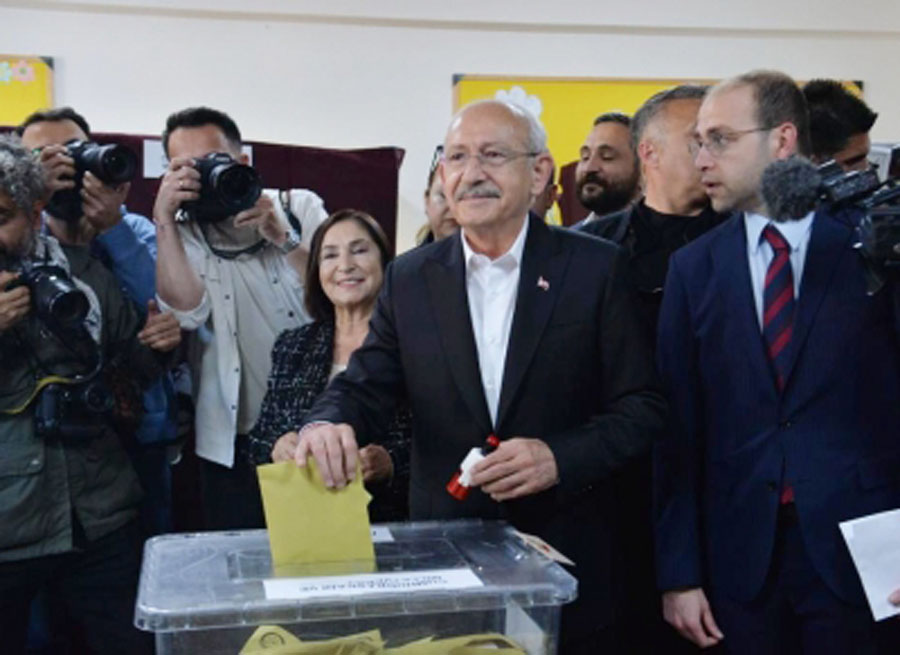Published on May 28, 2023
By IANS
Share

ANKARA — Voting is underway in Turkey's presidential runoff on Sunday, with incumbent President Recep Tayyip Erdogan and his leading contender Kemal Kilicdaroglu racing for the presidency.
[bsa_pro_ad_space id=1]The polls opened at 8 a.m. (0500 GMT) and close at 5 p.m. (1400 GMT) local time. Unofficial results are expected at roughly 9 p.m. local time (1800 GMT), Xinhua News Agency reported.
The presidential and parliamentary elections on May 14 saw a high voter turnout at 86.98 per cent as almost 54 million citizens went to the polls. Nearly 50,000 new voters who recently turned 18 are eligible to vote in the runoff.
In the first round of the presidential election, incumbent President Erdogan had earned 49.52 per cent of the vote while Kilicdaroglu received 44.88 per cent. Meanwhile, a third candidate, nationalist politician Sinan Ogan, gained 5.17 per cent.
Meanwhile, parliamentary election results showed that Erdogan's People's Alliance garnered a majority of 323 seats in the 600-seat parliament, while the six-party opposition block Nation Alliance received 212 seats.
The four-party ATA Alliance, whose presidential candidate was Ogan, dissolved after the first round. Ogan then announced his endorsement of Erdogan in the runoff on the grounds that the incumbent president's alliance has the parliamentary majority and his continued presidency is essential for maintaining the country's stability.
Umit Ozdag, leader of the Victory Party, a central component of ATA Alliance, has announced his support for Kilicdaroglu, who adopted a more nationalist and hard-line stance on deporting millions of Syrian and Afghan refugees.
For the past two weeks, the two leading candidates have been vying for nationalist votes and pledged to focus on problems regarding refugee issues as the first round's results showed an increase in support for nationalist parties.
Erdogan, who has been leading the country since he became prime minister in 2003, became the first executive president of Turkey in 2018 following a constitutional referendum in 2017 which changed Turkey's parliamentary system into a presidential system.
The elevated cost of living, high inflation and the aftershocks of devastating earthquakes in early February in southern Turkey were high on voters' agenda in the first round of elections.
Despite economic troubles that weighed on Erdogan's prospect, the first round's results showed that Erdogan still enjoys a loyal political base that could re-elect him for a third term.
Under his leadership, Turkey has increased its presence in regional affairs despite contentions with the United States and other Western allies on issues such as the Syria conflict and rapprochement with Russia.
Meanwhile, Kilicdaroglu has toughened his tone on deporting Syrian refugees and promised to send most of the 3.5 million Syrian refugees in Turkey to their homeland, voluntarily, within two years.
He also pledged to fight terrorism after Erdogan accused him of having the support of the outlawed Kurdistan Workers' Party.
If elected, Kilicdaroglu has pledged to abolish the presidential system and reintroduce the parliamentary system of government. However, since his alliance did not secure a majority in the parliament in the May 14 elections, the opposition is unlikely to change the country's administrative system.